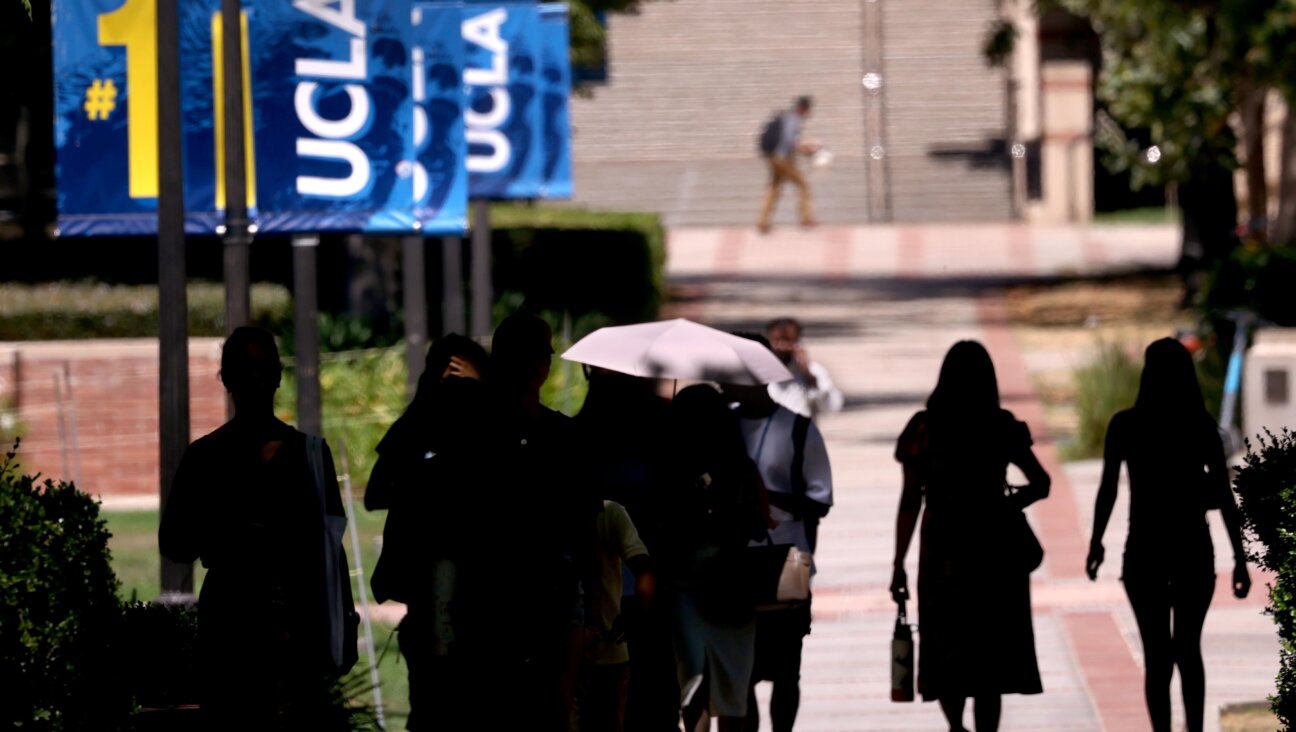Chabad and the ADL have different approaches to Israel on campus. Will a new partnership change that?
Chabad tends to welcome students regardless of their politics on Israel, while the ADL has cracked down on anti-Zionist student groups

A student at Columbia University wraps herself in an Israeli flag during a fall protest. Photo by Getty Images
“Antisemitism Notebook” is a weekly email newsletter from the Forward, sign-up here to receive the full newsletter in your inbox each Thursday
As reports of antisemitism on college campuses — and lawsuits about it — have skyrocketed since the onset of the war in Gaza, the Anti-Defamation League has launched its “Not On My Campus” campaign. The group announced in January that it would begin publishing a “report card” for prospective students grading universities on how they handle antisemitism, edging into territory that had long been the purview of Hillel International’s annual college guide.
And at the ADL’s national conference last week, chief executive Jonathan Greenblatt unveiled a new partnership with Chabad on Campus that he said had taken several years and “a ton of work.”
Details are scarce, but the ADL plans to start training Chabad’s campus rabbis — called shluchim — and the two groups will launch a joint portal to log reports of antisemitism.
This jumped out to me because it has the potential to run counter to a special sauce that has helped Chabad thrive on campus: the autonomy of its shluchim. That has included lots of flexibility around Israel, and few of the political litmus tests that have turned some Jewish students off from engaging with Hillel in recent years.
In contrast to Chabad’s “take all comers” approach, the ADL has been warning about the threat it believes is posed by anti-Zionist Jews — especially since Oct. 7. Greenblatt has repeatedly compared them to white supremacists; during his keynote last week, he likened Jewish Voice for Peace, which boasts a large campus presence, to David Duke and the Proud Boys.
“I don’t even know what that means,” said Rabbi Mendel Matusof, who has welcomed JVP members to the Chabad at the University of Wisconsin over the years. “We need to recognize we’re all part of the same community.”
(Both the ADL and Chabad emphasized in statements that the partnership was one of many they each maintain, and Rabbi Avi Weinstein, the chief operating officer of Chabad on Campus, said: “There has been no shift in policy. We welcome every Jew, no matter their opinions on Israel or other topics.”)
Matusof’s open approach to Israel — he’s a strong supporter, but doesn’t want any Jewish students to feel unwelcome — first made headlines five years ago, after Nesha Ruther, a leader of Students for Justice in Palestine, joined his Chabad.
Ruther, who is now 25, isn’t so sure that she’d do so today. She sees Chabad’s partnership with the ADL as a sign of the shrinking Jewish tent on campuses and noted that “so many people are operating from a place of deep fear.”
“In the past there was more space to hold differing opinions and still come together as Jews and still hold great amounts of pride and joy for one another,” she told me. “Unfortunately, I don’t see that being as likely in the future.”























